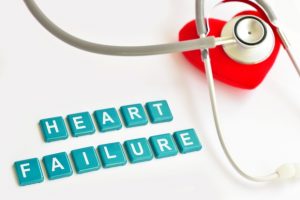
When a part of the plaque ruptures inside of the artery, a blood clot forms. As it grows, the passage of the blood gets narrower and narrower. As the blood clot continues to grow, the passageway may get completely blocked.
With immediate treatment, this issue can be resolved, but if not treated within an adequate time period, it can lead to a heart attack, which is associated with a range of complications, including death.
Complications of a heart attack in the elderly
Arrhythmia: Arrhythmia is an abnormal heartbeat. When the heart muscles get damaged due to heart attack, the electrical signals controlling the heart’s activity become blocked or disrupted.
Heart failure: Heart failure occurs when the heart is unable to effectively pump blood around the body. The condition can develop after a heart attack when the heart muscles become severely damaged.
Cardiogenic shock: Cardiogenic shock is similar to heart failure, but is more serious. The damage to the muscle is so severe that the heart can no longer pump blood to maintain bodily functions.
Heart rupture: The heart muscles, walls, or valves rupture when the heart attack severely damages the heart.
Valve problems: Heart valve disease refers to a group of conditions preventing the heart valves from properly functioning. It disrupts circulation and may turn into a life-threatening condition. When heart valve disease is spotted early on, the function of the heart valve can be successfully restored with treatment. After a heart attack, scar tissue forms, which can disrupt the circulation of blood or impair the proper functioning of the heart.
Angina: Damaged blood vessels after a heart attack can lead to angina, which is chest pain associated with an insufficient blood flow to the heart.
Ventricular fibrillation: Instead of the normal electrical activation of heart muscle contraction, the electrical activity is chaotic. As a result, the heart may stop pumping blood to the brain and other parts of the body, leading to serious complications.
The sooner a heart attack is treated, the lower the risk of developing heart attack complications is. It’s important that you spot the signs and symptoms of a heart attack early on in order to get a timely treatment and reduce your risk of complications.